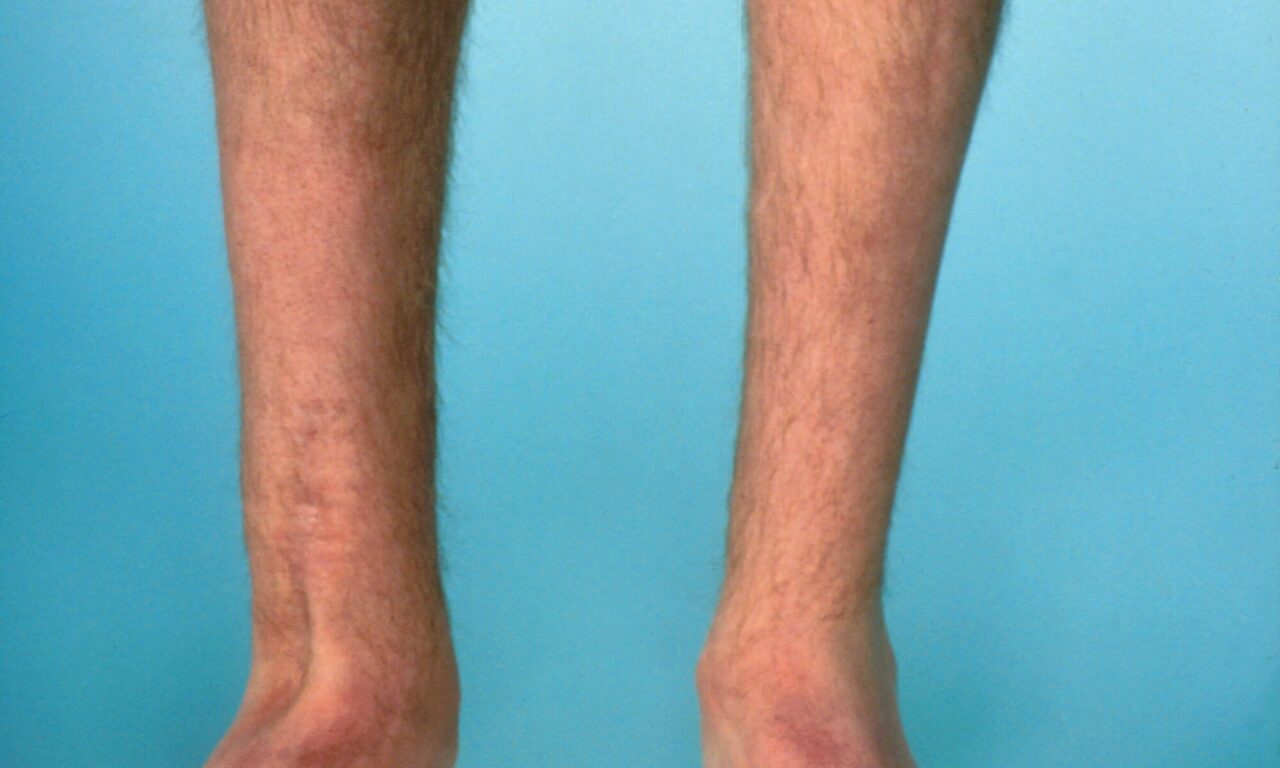Caring for a patient with muscular atrophy can be an intricate and emotionally demanding journey.
Muscular atrophy, a condition characterized by the progressive loss of muscle mass and strength, presents unique challenges for both patients and their caregivers. As a caregiver, your role is indispensable in not only addressing the physical needs of the patient but also providing unwavering emotional support.
In this guide, we show you the intricacies of caring for a patient with muscular atrophy and how best to care for such a patient. Our goal is to equip you with the knowledge and practical insights needed to navigate this challenging path.
We will explore the various types of muscular atrophy, the daily care requirements, and the vital importance of emotional support. By the end of this article, you will have a deeper understanding of muscular atrophy and a clear roadmap for delivering the best possible care to your loved one, enhancing their quality of life, and making a significant difference in their journey.
If on the other hand, you need exceptional caregivers who can help you care for such a patient, reach out to us on our website, Good Hands Home Care.
Understanding Muscular Atrophy
Before we discuss caregiving, it’s essential to understand what muscular atrophy is.
Muscular atrophy refers to the progressive loss of muscle mass and strength. The Cleaveland Clinic elaborates that this sickness involves the wasting or thinning of muscle mass.
It can be caused by disuse of your muscles or neurogenic conditions. Symptoms include a decrease in muscle mass, one limb being smaller than the other, and numbness, weakness, and tingling in your limbs. Disuse atrophy can be reversed with exercise and a healthy diet.
Various Types Of Muscular Atrophy
Muscular atrophy can be categorized into different types. Each type of muscular atrophy has its own unique characteristics and underlying causes and also presents its own unique challenges, so it’s crucial to consult with the patient’s healthcare team for precise information on their condition.
The main types of muscular atrophy include:
1. Spinal Muscular Atrophy (SMA)
This is a genetic disorder that primarily affects the motor neurons in the spinal cord, leading to muscle weakness and atrophy. SMA can vary in severity, with some individuals experiencing symptoms in childhood while others may not show signs until adulthood.
2. Amyotrophic Lateral Sclerosis (ALS)
Also known as Lou Gehrig’s disease, ALS is a progressive neurodegenerative disorder that affects both the upper and lower motor neurons. It leads to muscle weakness, loss of motor function, and, ultimately, difficulty breathing and swallowing.
3. Charcot-Marie-Tooth Disease (CMT)
CMT is a hereditary condition that damages the peripheral nerves, resulting in muscle weakness, especially in the extremities. It often leads to issues with balance and coordination.
4. Kennedy’s Disease (Spinal and Bulbar Muscular Atrophy)
A rare X-linked genetic disorder, Kennedy’s disease primarily affects men and is characterized by muscle weakness, muscle cramps, and atrophy, particularly in the limbs and facial muscles.
5. Werdnig-Hoffmann Disease
This is a severe form of SMA that affects infants, leading to profound muscle weakness and breathing difficulties. Symptoms typically appear shortly after birth or in early infancy.
Understanding the specific type of muscular atrophy a patient has is crucial for accurate caregiving. Each subtype may require a different approach to care, and consulting with healthcare professionals is essential for tailored management and support.
Caring for a Patient with Muscular Atrophy
There is no one-size-fits-all guide on how to care for someone with muscular atrophy. However, we have pieced together a list of helpful practices and care tips to help you adequately care for them while working hand in hand with their healthcare professionals.
Now here are some care tips for caregivers caring for a patient with muscular atrophy:
1. Daily Care
For patients with muscular atrophy, daily care is a routine that will keep them healthy and happy. Here is what you can do to care for them daily:
Assist with Mobility
As muscular atrophy progresses, patients may have difficulty moving. Assistive devices like wheelchairs and mobility aids can be helpful in maintaining their independence and mobility.
Here is a guide we curated on how to make the right choice of assistive technology for caregiving. Ensure to work with their healthcare personnel for a tailored-to-fit mobility device.
Personal Hygiene
Muscular atrophy can affect a patient’s ability to perform daily tasks, including bathing, grooming, and using the restroom. Be prepared to assist with these activities while respecting their privacy and dignity.
We have a guide on personal hygiene tips that can help you groom your patient.
Nutritional Support
Food and hydration are crucial care concerns caregivers should consider when caring for a patient living with muscular atrophy.
Consult with a registered dietitian to create a meal plan that meets the patient’s nutritional needs. As swallowing and chewing may become difficult, you might need to modify your diet to include softer or pureed foods.
Breathing Assistance
Some forms of muscular atrophy, like ALS, affect the muscles involved in breathing. In such cases, mechanical ventilation may be necessary. Ensure that the patient is comfortable with the equipment, and monitor it regularly.
Medication Management
Keep track of the patient’s medication schedule and dosage. You can easily manage medication by creating a medication schedule or using technology solutions for medication reminders.
Also, be vigilant for side effects and report any concerns to their medical team.
2. Emotional Support
Caring for someone with muscular atrophy can be emotionally challenging for both the caregiver and the patient. Here are some strategies to provide emotional support:
Encourage communication
Encourage open and honest communication. Let your patients express themselves and be patient as they learn to communicate effectively. You, on the other hand, have to practice active listening without judgment for effective communication.
Quality Time
Spend quality time together doing activities the patient enjoys. This helps maintain a sense of normalcy and fosters a strong emotional bond.
Support Groups
Connect with local or online support groups for caregivers and patients with muscular atrophy. These groups can provide valuable insights and emotional support.
3. Your Self-Care
Don’t neglect your own well-being. Caring for a loved one can be physically and emotionally draining, so take time for self-care and seek respite when needed. If you don’t know how, see our guide, Self-care For Caregivers.
Is muscular atrophy the same as muscular dystrophy?
No, muscular atrophy is not the same as muscular dystrophy. Muscular atrophy refers to the progressive loss of muscle mass and strength, while muscular dystrophy is a group of genetic disorders that cause muscle weakness and degeneration over time.
For how to care for a patient with muscular dystrophy, see our guide on caring for a patient with muscular dystrophy.
Conclusion
Caring for a patient living with muscular atrophy is a multifaceted responsibility that requires compassion, patience, and dedication. As a caregiver, it’s crucial to continually educate yourself about the specific type of muscular atrophy your loved one is experiencing and to work closely with their healthcare team.
Remember, you are not alone in this journey. Seek support from medical professionals, support groups, and friends and family. Your role as a caregiver is invaluable, and by providing comprehensive care and emotional support, you can significantly improve the quality of life for your loved one with muscular atrophy.
We hope you found this guide helpful.
If you are in Indiana and looking for how to access quality care services and personalized client care plans, visit Good Hands Home Care Agency, where care is offered with professionalism and efficiency.





